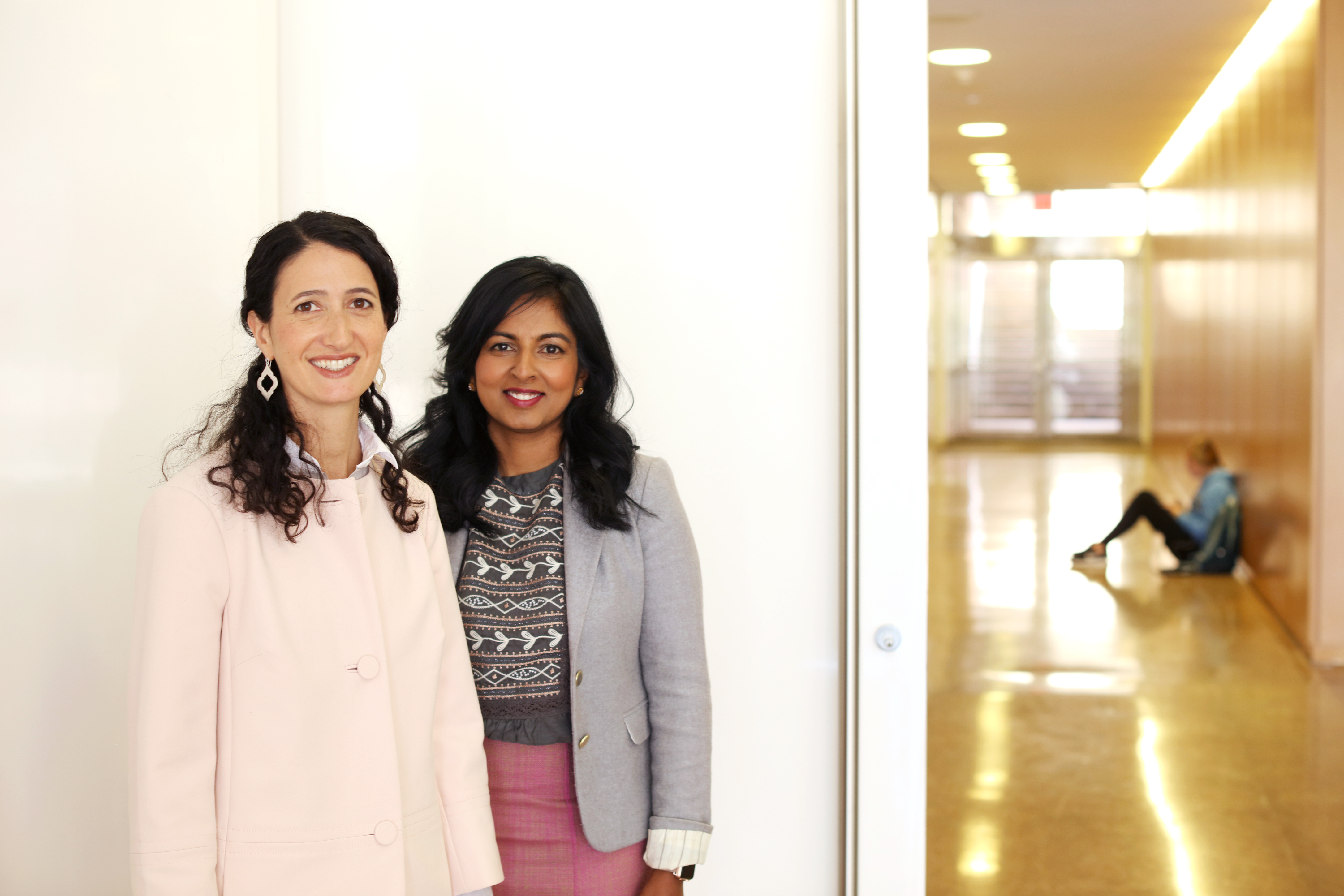Agenda Overview
View the 2022 Showcase Schedule
- 9:00 a.m. - 9:30 a.m.: Check-In & Breakfast
- 9:30 a.m. - 9:45 a.m.: Welcome
- 9:45 a.m. - 10:25 a.m.: Keynote Speakers
- 10:35 a.m. - 12:15 p.m.: Learning Circles
- 12:15 p.m. - 1:00 p.m.: Lunch
- 1:05 p.m. - 1:55 p.m.: Advancing Educational Innovation at the University of Miami
- 1:55 p.m. - 2:05 p.m.: Closing Remarks
- 2:05 p.m.- 3:00 p.m.: Networking
👥 Keynote Speakers
Cultivating Equitable Learning Environments through Inclusive Teaching

Dr. Kelly Hogan and Dr. Viji Sathy
Description
An interactive keynote to explore inequities and diversity in the classroom. Participants are provided a framework around inclusive teaching and examples of how using this framework can reduce inequities. Professors Kelly Hogan and Viji Sathy of the University of North Carolina will discuss and model some techniques in real-time.
Speaker Bios
Dr. Kelly Hogan (she/her/hers) and Dr. Viji Sathy (she/her/hers) are both award-winning instructors with a combined 25+ years in the classroom at the University of North Carolina. They are passionate about student success, equity, and inclusion in the classroom. They have expertise in inclusive techniques and active learning in any size crowd because both teach courses routinely with hundreds of students. On their campus, they lead innovative classroom and diversity administrative initiatives that benefit all students, faculty, and staff.
Twitter: @vijisathy @DrMrsKellyHogan #inclusiveteaching #inclusiveclassrooms
💬 Learning Circles
Learning Circles are designed for small group discussions of specialized topics, with the presenter leading the discussion. Several roundtable discussions happen concurrently, where presenters will lead three 30-minute repeat discussions, enabling attendees to visit up to three tables during the entire session.
Topics and Presenters are listed at the bottom of this webpage.
💡Advancing Educational Innovation at the University of Miami
In our featured panel session, you’ll learn how faculty members across the University are advancing the cause of the institution's teaching mission through pedagogical innovation, interdisciplinary collaboration, and cutting-edge technology.
Topics and Presenters
- Kathi Kern, Vice Provost for Educational Innovation (Moderator)
- William Green, Professor, Religious Studies and Fain Family Endowed Chair in Judaic Studies
- Derin Ural, Professor in Practice, Civil, Architectural and Environmental Engineering; Associate Dean of Student Affairs, College of Engineering
- Sharanya Majumdar, Professor, Department of Atmospheric Sciences; Co-Director, Climate Resilience Academy





